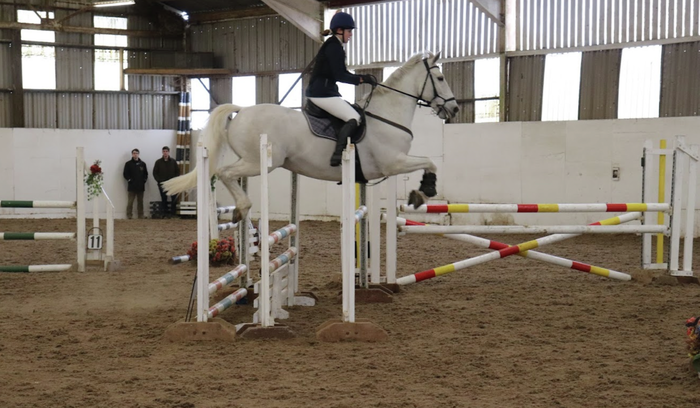Should sustainability come before athletes’ health?
Romilly Norfolk discusses how sustainability measures at the 2024 Olympics have hindered athletes’ performances

As the 2024 Olympics Games come to a close in Paris on Sunday, we can start to reflect on the non-sporting aspects of the Games. Namely, how failures by the Paris Olympic Committee have affected the performance and health of athletes, all in the name of sustainability.
One of Paris’ key pledges for hosting the games was its commitment to sustainability. Some of these efforts have been beneficial – cutting carbon emissions, reducing waste by minimising resources and using sustainable energy have all helped the environment. However, other measures have been detrimental for athletes, namely the commitment to sustainably sourced food, with greater plant-based options, and the conditions in the athletes’ village causing issues for Olympians.
“As the games have progressed it has become clearer that conditions in the athletes’ village are not adequate to foster the best sporting performances”
Before the games even officially started it was reported that the food in the Olympic Village was inadequate. Sources of protein such as eggs and chicken had to be rationed, with some athletes served raw meat. Even weeks after, the food situation has not improved, with British swimmer Adam Peaty telling the i that people were finding worms in the food in the Olympic Village. Team GB even flew in their own chef to counteract these issues.
As the games have progressed it has become ‘clearer that conditions in the athletes’ village are not adequate to foster the best sporting performances that should be expected at the Olympics.
The sustainable cardboard beds that athletes must sleep on have become a subject of debate since they were introduced at the last Olympics in Tokyo. Branded often as ‘anti-sex’ beds, the cardboard constructions have been utilised as a lower cost and more sustainable option for providing over 14,000 athletes a place to sleep. However, many have complained about the beds and their hardness. Many teams, including the US, have sought to sourcing mattress protectors to rectify the issue.
Not only have the beds affected athletes but the temperature of the rooms, and for some the lack of curtains, have hindered their sleep. Italian swimmer and gold medalist Thomas Ceccon complained that the conditions in the athletes’ village meant he couldn’t rest enough and missed out on qualifying for the final of the 200m men’s backstroke. Ceccon isn’t the only athlete to complain about the lack of air conditioning in the village, with others saying the fans provided are not enough to deal with the heat.
“Should Olympic athletes be the guinea pigs for a city’s attempt at regeneration?”
Beyond the zone of the Olympic Village comes the Paris Olympics’ greatest sustainability challenge: the Seine. Parisian authorities took the Olympics as an opportunity to accelerate plans to clean up the Seine, with the end goal of all Parisians being able to swim in it by 2025. However, the last week has been plagued by uncertainties around the river’s quality. The men’s triathlon event was delayed by a day due to poor water quality after heavy rain, but a last minute check of the bacteria levels in the river allowed it to go ahead. The mixed triathlon was also under threat of cancellation but went ahead as planned, despite some teams calling for delay due to the lack of preparation time athletes were allowed because of poor water conditions. Marathon swimmers have also suffered, with familiarisation swims being cancelled and rescheduled due to levels of bacteria in the Seine.
Some athletes have fallen ill after swimming in the Seine, and although some have cleared up reports that this was linked to E. Coli levels in the river, others have said it’s hard to determine whether the river was to blame.
These instances can make us question whether sustainability at the Olympics is truly the best idea. Don’t be mistaken, sustainable food, river health, and regeneration of the Olympic village is certainly no bad thing. But why should Olympic athletes be the guinea pigs for a city’s attempt at regeneration? People who train for four years to compete at the height of their sport have been let down by failings made by people just trying to wash over urban issues with ‘sustainability’. Sustainability needs time and proper investment, which the cost and responsibility of hosting an Olympics can often impede.
All we can hope is that the Paris Olympic Committee sorts out these issues before the Paralympics begin on 28th of August, and future Olympics learn from the mistakes of past ones.
 News / Cambridge academics stand out in King’s 2026 Honours List2 January 2026
News / Cambridge academics stand out in King’s 2026 Honours List2 January 2026 Interviews / You don’t need to peak at Cambridge, says Robin Harding31 December 2025
Interviews / You don’t need to peak at Cambridge, says Robin Harding31 December 2025 Comment / What happened to men at Cambridge?31 December 2025
Comment / What happened to men at Cambridge?31 December 2025 News / Unions protest handling of redundancies at Epidemiology Unit30 December 2025
News / Unions protest handling of redundancies at Epidemiology Unit30 December 2025 News / Varsity’s biggest stories of 202531 December 2025
News / Varsity’s biggest stories of 202531 December 2025










